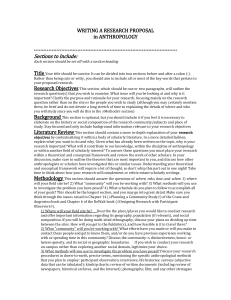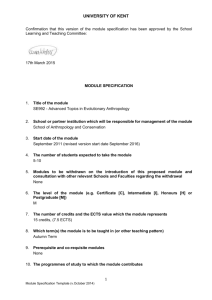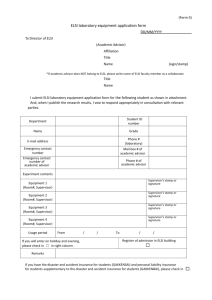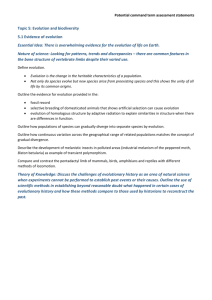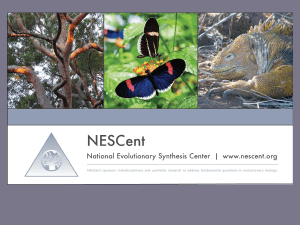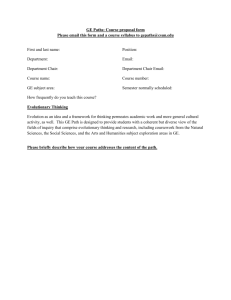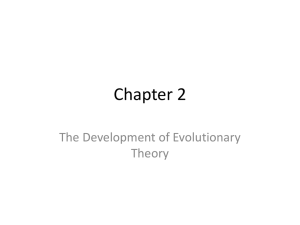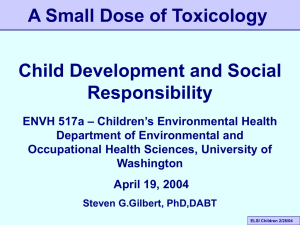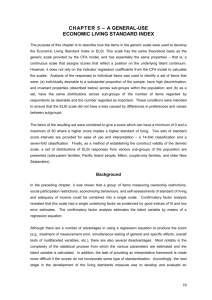Racial Justice-Funding-handout
advertisement
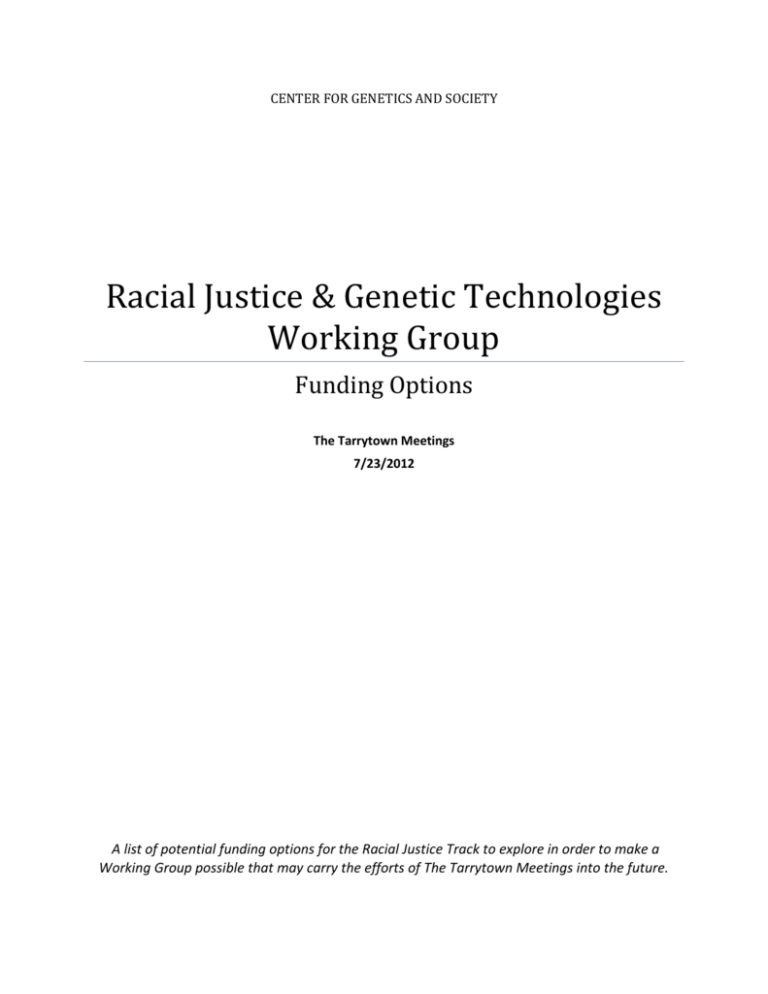
CENTER FOR GENETICS AND SOCIETY Racial Justice & Genetic Technologies Working Group Funding Options The Tarrytown Meetings 7/23/2012 A list of potential funding options for the Racial Justice Track to explore in order to make a Working Group possible that may carry the efforts of The Tarrytown Meetings into the future. Table of Contents 1. The Wenner-Gren Foundation ……………………………………………………………………………………… 2 2. NESCent Working Groups ……………………………………………….……………………………………………. 2 3. NESCent Catalysis Meetings ……………..…………………………………………………………………………. 3 4. National Science Foundation – Science, Technology, and Society…………………………………. 4 5. National Science Foundation – Biological Anthropology …………………………………………….... 4 6. ELSI Research Program ………………………………………………………………………………………………… 5 7. National Institutes of Health ……………………………….……………………………………………………….. 6 8. Brocher Foundation in Geneva …………………………………………………………………………….………. 6 1 The Wenner-Gren Foundation Supporting Worldwide Research in all Branches of Anthropology Conference and Workshop Grants are for amounts up to $20,000. In accordance with the mission of the Foundation, priority is given to events that foster the creation of an international community of research scholars in anthropology and advance significant and innovative anthropological research. Conferences are defined as public events that are comprised primarily of oral and poster presentations to a larger audience of anthropologists. Priority is given to major conferences sponsored by large international anthropological organizations (e.g., the European Association of Social Anthropologists, European Anthropological Association, Pan African Anthropological Association, and Latin American Anthropological Association) that serve as their annual or periodic meetings Workshops are defined as working meetings that focus on developing and debating topical issues in theoretical anthropology. Workshops involve a small group of scholars who meet for a sufficient period of time to deal intensively with the topic. Priority is given to those workshops that devote the majority of time to discussion and debate rather than to the presentation of papers. It is expected that workshops will result in a publication. The application must be made by a professional anthropologist who is the primary organizer of the proposed conference or workshop. A co-applicant can be specified on the application. Applications are not accepted from students without a co-applicant who has a doctorate and holds an established academic position. http://www.wennergren.org/programs/conference-and-workshop-grants NESCent National Evolutionary Synthesis Center a. Working Groups Working groups involve small groups of scientists (10-12 participants) collaborating intensively on the analysis or synthesis of data, models or both, to address a major question in evolutionary science. The working groups will typically meet 3-4 times over two years, with each meeting lasting 3-5 days. Working group applications will be evaluated on the extent to 2 which they address an important and outstanding evolutionary question, are "risky" endeavors but, with a reasonable chance of success; reflect NESCent’s scientific mission to advance research that addresses fundamental questions in evolutionary science by integrating methods, concepts, and data within and across disciplines; are not to be readily supported by other funding mechanisms or opportunities; provide evidence that sufficient data are available to tackle the question; provide evidence that appropriate analytical tools are available or will be developed during the project; incorporate diverse group of scientists that go beyond existing collaborations and include multiple disciplines, emerging scientists including graduate students, and international linkages; generate products that typically fall into (but are not restricted to) three broad categories: Synthetic papers and reviews, Databases allowing others to build on your foundation, and Software or mathematical tools that solve a major analytical problem. NESCent will not support collection of new data or field research, but encourages the mining of public and private databases. NESCent is committed to making data, databases, software and other products that are developed as part of NESCent activities available to the broader scientific community. Meetings should focus on synthetic scientific or educational research in evolutionary science. Meetings will be held at NESCent in Durham, North Carolina. Support includes travel, lodging and per diem. No salary support is provided, and no overhead is allowed. http://www.nescent.org/science/workinggroup.php b. Catalysis Meetings These one-time meetings bring together around 30 scientists from diverse disciplines to focus on a major question or research area in evolutionary biology. Catalysis meetings are intended to focus on a theme that is grand enough to excite and inspire, to increase the scale and ambition of our scientific vision, to design avenues for scientific synthesis, to identify classes of primary data that must be collected before grand-scale synthesis is possible, to initiate a dialogue across disciplinary boundaries, to influence the research programs of potential collaborators, and to facilitate the assembly of scientific networks. Meetings should focus on synthetic scientific or educational research in evolutionary science. Meetings will be held at NESCent in Durham, North Carolina. Support includes travel, lodging and per diem. No salary support is provided, and no overhead is allowed. Please note that the earliest date of the meeting for applications submitted for the July 10th deadline would be November 1st and for applications submitted for the December 1st deadline would be April 15th (for all NESCent grants). http://www.nescent.org/science/meetings.php 3 National Science Foundation Science, Technology, and Society STS considers proposals for scientific research into the interface between science (including engineering) or technology, and society. STS researchers use diverse methods including social science, historical, and philosophical methods. Successful proposals will be transferrable (i.e., generate results that provide insights for other scientific contexts that are suitably similar). They will produce outcomes that address pertinent problems and issues at the interface of science, technology and society, such as those having to do with practices and assumptions, ethics, values, governance, and policy. Examples of what’s been funded recently: “Doctoral Dissertation: Intimate Sharing: The Enduring Connections of Living Organ Donation in the Contemporary United States”, “A History of the Impact of Euro-American Linguistic Technologies on Chinese Information Infrastructure” http://www.nsf.gov/funding/pgm_summ.jsp?pims_id=5324&org=SES&from=home National Science Foundation Biological Anthropology The Biological Anthropology Program supports basic research in areas related to human evolution and contemporary human biological variation. Research areas supported by the program include, but are not limited to, human genetic variation, human adaptation, human osteology and bone biology, human and nonhuman primate paleontology, functional anatomy, and primate socioecology. Grants supported in these areas are united by an underlying evolutionary framework, and often a consideration of adaptation as a central theoretical theme. Many proposals also have a biocultural orientation. The program frequently serves as a bridge within NSF between the social and behavioral sciences and the natural and physical sciences, and proposals are commonly jointly reviewed and funded with other programs. Examples of what has been funded recently: “Doctoral Dissertation: Group Decision Making in Gregarious Primates”, “Genes and the fertility of Tibetan Women at High Altitude in Nepal”. Full Proposal Target Date: August 20, 2012, Senior Research, August 20, Annually Thereafter. Full Proposal Target Date: January 20, 2013, Senior Research, January 20, Annually Thereafter http://www.nsf.gov/funding/pgm_summ.jsp?pims_id=5407&org=BCS&from=home 4 ELSI Research Program The Ethical, Legal and Social Implications (ELSI) Research Program The National Human Genome Research Institute's (NHGRI) Ethical, Legal and Social Implications (ELSI) Research Program was established in 1990 as an integral part of the Human Genome Project (HGP) to foster basic and applied research on the ethical, legal and social implications of genetic and genomic research for individuals, families and communities. The ELSI Research Program funds and manages studies, and supports workshops, research consortia and policy conferences related to these topics. The NHGRI, along with several other National Institutes of Health (NIH) institutes, has released revised general program announcements to solicit research projects that anticipate, analyze, and address the ethical, legal, and social implications of the discovery of new genetic technologies and the availability and use of genetic information resulting from human genetics and genomic research. a. ELSI Exploratory/Developmental Research Grants (R21) This announcement encourages studies that break new ground or extend previous discoveries toward new directions or applications. Of particular interest are studies that explore the implications of new or emerging genomic technologies or novel uses of genomic information. These applications may request no more than $275,000 in direct costs for up to two years, with no more than $200,000 in direct costs in a single year. b. ELSI Small Research Grant (R03) This announcement encourages small, self-contained ELSI research projects. Of particular interest are studies that propose focused legal, economic, philosophical or historical analyses of new or emerging issues. These applications may request no more than $50,000 in direct costs per year for up to two years. c. ELSI Conference Grant (R13) The purpose of the NIH Research Conference Grant Program is to support high quality conferences/scientific meetings that are relevant to the scientific mission of the NIH and to the public health. A conference/scientific meeting is defined as a gathering, symposium, seminar, scientific meeting, workshop or any other organized, formal meeting where persons assemble to coordinate, exchange, and disseminate information or to explore or clarify a defined subject, problem, or area of knowledge. Prior to preparing an application, it is critical that all applicants consult the appropriate IC representative. http://www.genome.gov/10001618 5 National Institutues of Health Department of Health and Human Services Scientific Meetings for Creating Interdisciplinary Research Teams in Basic Behavioral and Social Science Research (R13) This department encourages Research Conference Grant (R13) applications from institutions and organizations that propose to develop interdisciplinary research teams. Teams must include investigators from the social and/or behavioral sciences, and may include the life and/or physical sciences. The goal is to broaden the scope of investigation into scientific problems, yield fresh and possibly unexpected insights, and increase the sophistication of theoretical, methodological, and analytical approaches by integrating the analytical strengths of two or more disparate scientific disciplines while addressing gaps in terminology, approach, and methodology. This program will allow investigators from multiple disciplines to hold meetings in order to provide the foundation for developing interdisciplinary research projects. http://grants.nih.gov/grants/guide/pa-files/PA-10-106.html Brocher Foundation in Geneva The Brocher Foundation offers researchers the opportunity to organize a one and a half day multidisciplinary symposium, or a two, three or four day multidisciplinary workshop on the ethical, legal and social implications on humankind of recent medical research and new medical technologies. They have calls for proposals every year. Their focus is always on biotech and society, though the emphasis may vary from year to year. The Brocher Foundation is inviting junior and senior researchers to submit proposals for a 1.5 day multidisciplinary symposium project on the ethical, legal and social implications of new medical developments. The Brocher Foundation will host the event between February and May or between July and October 2013. The fully equipped Brocher Centre Conference room – situated in Hermance, 15 kilometers from Geneva, Switzerland — can host up to 60 participants in an exceptional location on the shores of Lake Geneva. http://www.brocher.ch/pages/appel_projets.asp 6
